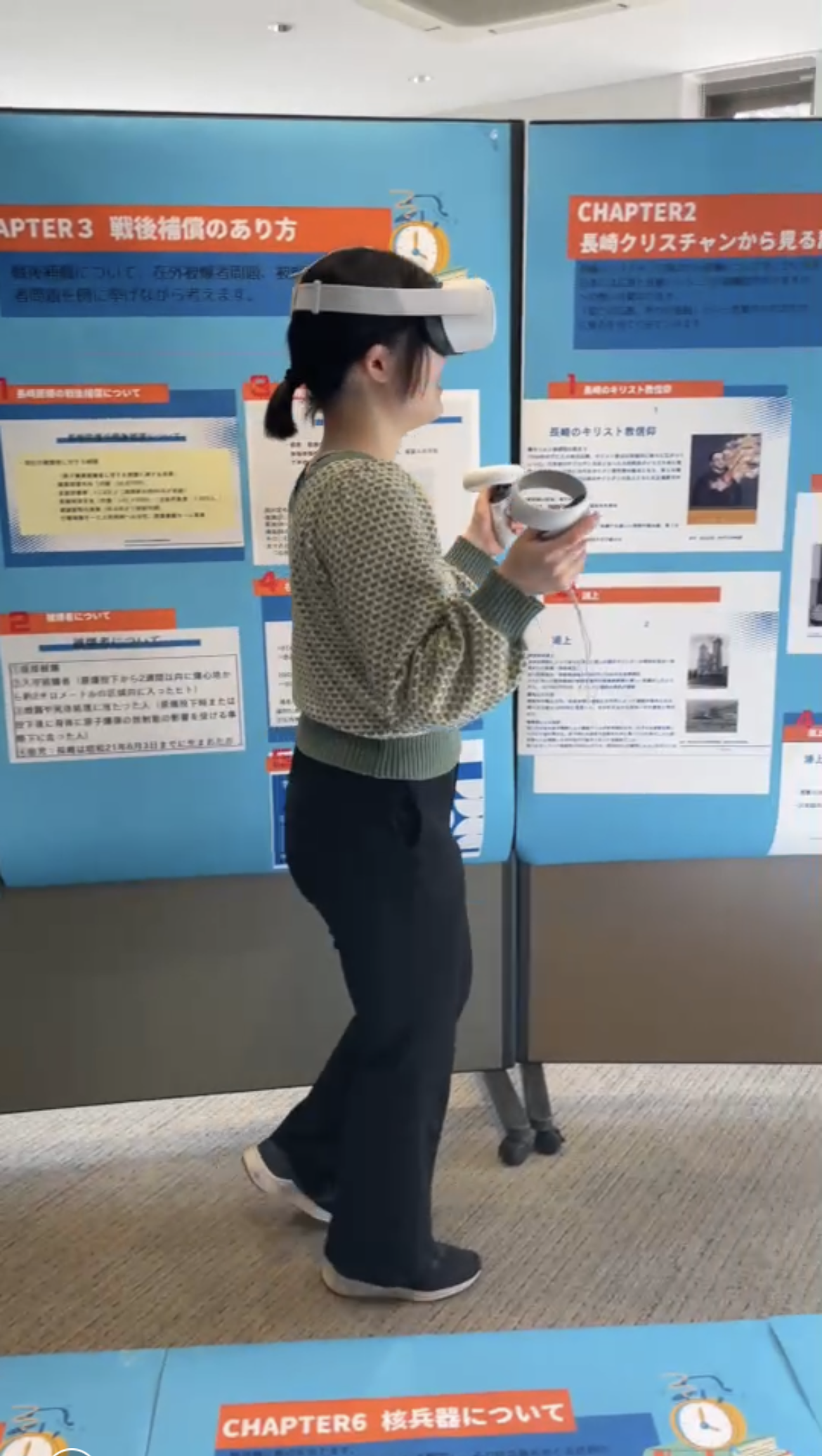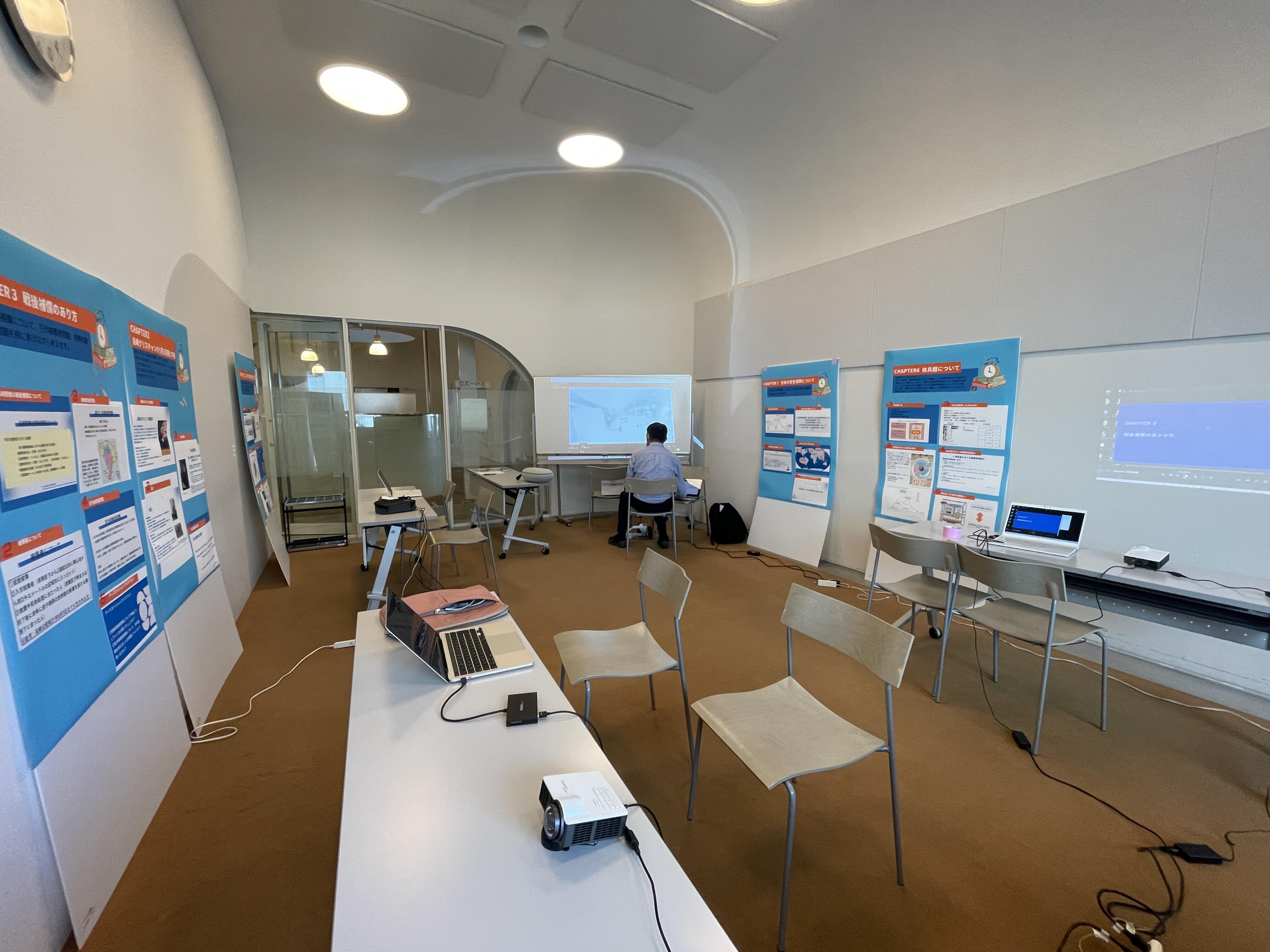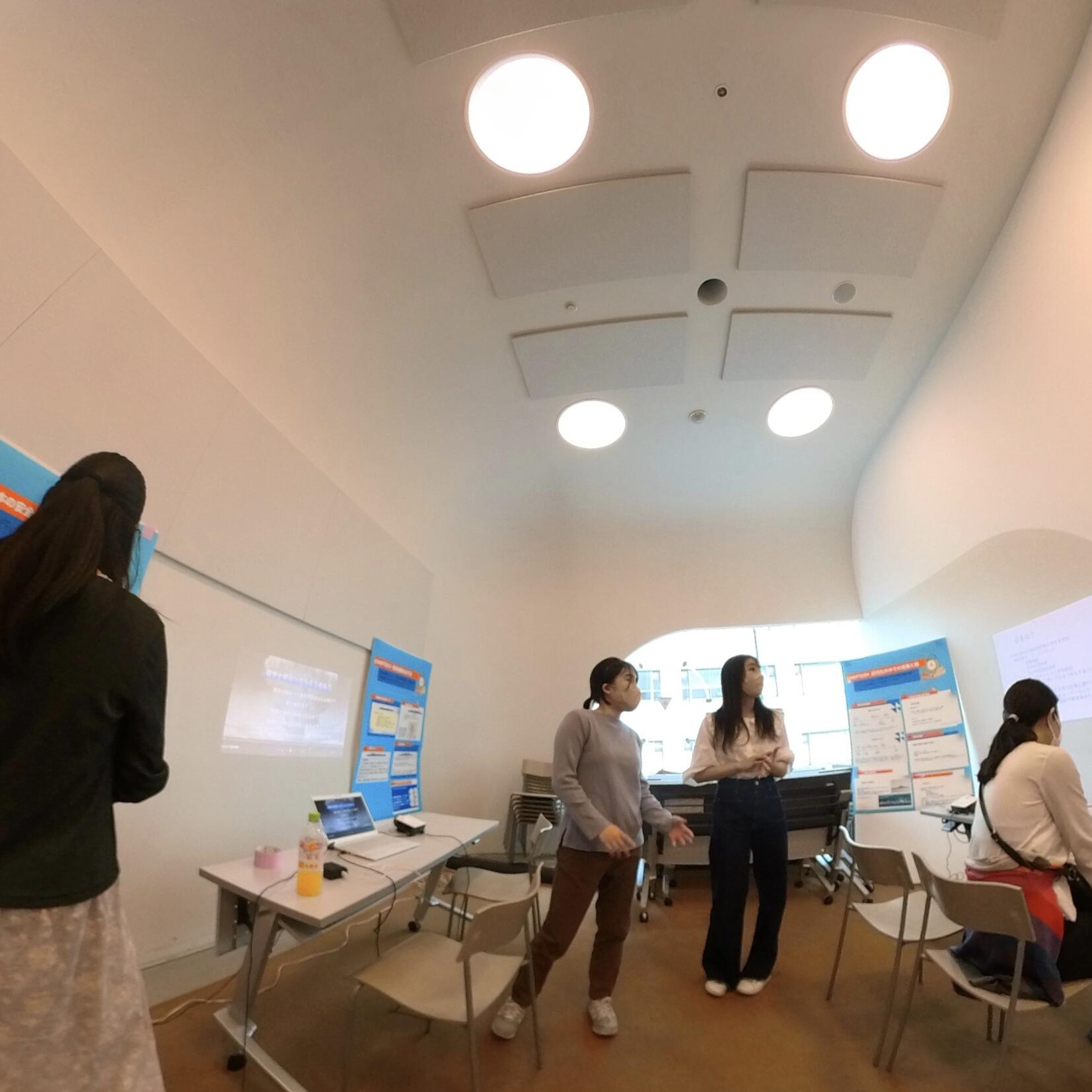Community SL Testimonials 2022
| Year 2018 | 2019 | 2020 | 2021 | 2022 | 2021 | 2023 | 2024 | 2025 |
JSSL(Japan Summer Service-Learning) Program
My experience in Tenryu Village was different from other students who participated in the program. Since I am a Japanese learner, I was able to listen to the local people’s stories and learn many new words as well as the history of Tenryu Village. Even after the day's activities were over, I was still speaking Japanese all the time, so I was constantly absorbing new knowledge. Thanks to this, I was able to improve my vocabulary and conversation skills. Not only that, but I was able to deepen the relationships with other students. Since I lived with the same six students every day, I had no choice but to show them how healthy I was, how tired I was, how hungry I was, etc. It was only one month, but we quickly became good friends.
In addition, the activities in Tenryu Village also left a lasting impression on me. Talking with the elderly people living in the village, studying with the students, and playing with the children, I was able to directly experience the culture and social relations of Tenryu Village. In particular, unlike examining traditional customs in library materials, I was able to learn more about the villagers' way of thinking by actually visiting the site.
Note: This is a translation of Japanese testimonial written by a international student who is currently a Japanese learner.
Menno Village Naganuma
I woke up in the morning, helped take care of the livestock, ate breakfast, did farm work, resumed farm work after lunch, had dinner, went to bed, and the day went by in a cycle. Since agriculture, which had occupied most of my time, was an unknown field to me, the experience of learning by seeing and touching real things with my own eyes and hand was fresh and valuable, and I felt that my interest in this new field of agriculture was opening up. In addition, by talking with various people who visit Menno Village and having more in-depth conversations with Menno Village residents, I learned about new life options and came to believe that it is possible to live more freely as I wish. I really liked the way of life at Menno Village, which is to carefully weave a life in the here and now without being in too much of a hurry, and even now that I am back in Tokyo, I value this way of life and the way I perceive time. In addition, I felt that the people at Menno Village do not see farming itself as "work" but as something that enriches their lives, and this has changed my own view of work. I learned that although it is an occupation as a means of earning money, it can also be seen as something that is deeply related to our daily lives and enriches our lives and, by extension, our own lives.
I was very much impressed when a person from Menno Village said, "We are farmers with such a desire to keep the fire of human life burning for a long time," and I am grateful that I was able to stay for 30 days in a community that has such a desire.
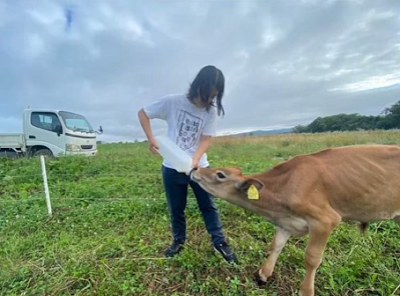
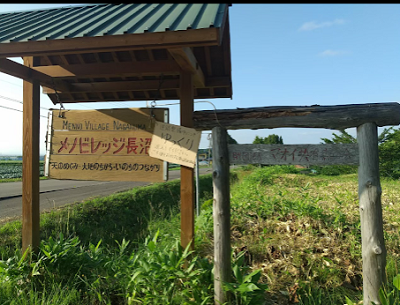
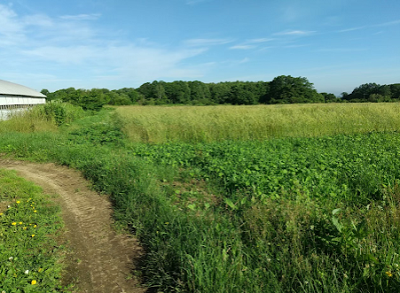
Research Center for Nuclear Weapons Abolition (RECNA), Nagasaki University/Nagasaki Foundation for the Promotion of Peace
It was a very good experience for me to face and think about peace, atomic bombs, war and power from various perspectives. Among them, I was especially impressed that I was able to participate in the Mt. Inasa Peace Music Festival through the activities of the Nagasaki Peace Promotion Association. I was able to think about peace from the aspect of music and made new discoveries.
When I first began my activities, I was only worried about whether I would be able to grow to a level where I could build positionality and engage in dialogue with others. However, as I listened to artists and media representatives at the Nagasaki University Research Center for Nuclear Weapons Abolition (RECNA) sessions who were dealing with the A-bomb issue, I realized that we, who were born in this era and have not experienced war, are no different from those living in a world with nuclear weapons, and that we should do something about it because we feel threatened by the threat in our own lives. We are no different from those who live in a world with nuclear weapons, and we should do something about it because we feel threatened. With this realization, I feel that matters that I had previously considered somewhat distant and less relevant to me have become closer to me. I would like to propagate this change in myself to those who are not participating in the Service-Learning Program and look for others who can think about these issues together with me.
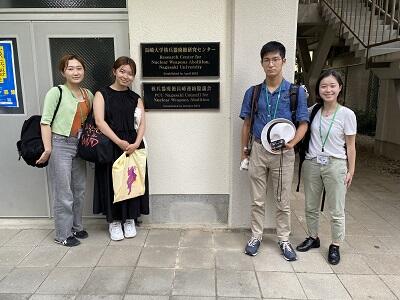
Dochavengers (Gojome Town, Akita)
One of the big attractions of service-learning is that you can put the knowledge you have learned at university to practical use. Furthermore, I believe that my life will be enriched by interacting with people I cannot meet in daily and feeling the relaxed time and warmth of people in Gojome. One of the most memorable aspects of our activities is the importance of being part of the community. Initially, I concentrated on being aware of the issues and interviewing people about what was relevant to the problems and what I wanted to know. However, during the mid-term reflection, the person I was working with asked, "Is that what the people here truly wish for?” and “You may want to join the community.” After hearing those words, I began to pursue the question of how an outsider should enter the community. I was also advised to disclose myself, but I did not know what parts of myself to uncover and what questions to ask in order to interact with others. I believe I learned that apparent concrete service is not essential service, but that unexpected behavior may be a service to the recipient.
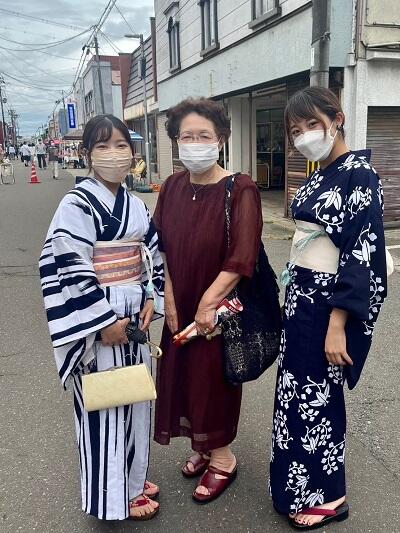
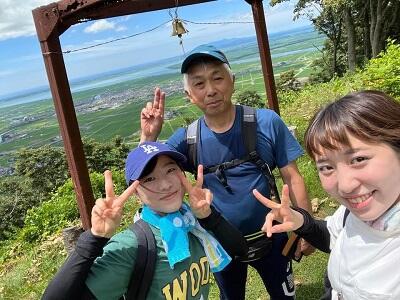
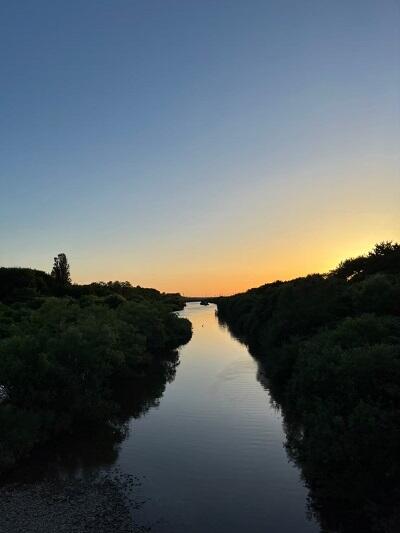
Collabo-School Otsuchi Ringakusha, operated by NPO KATARIBA
I did service activity in the field of education to research the disaster and learned more than I could contribute to the people there. In particular, I felt that studying at ICU was not enough to broaden my perspective. In fact, when I was exposed to the values of the local people, I felt as if I had encountered foreign values, even though I was in Japan. I think this means that cultural diversity exists even within Japan, and that there are ways of thinking that I am not yet aware of. I have tended to focus my attention outside of Japan, but this program allowed me to see the possibilities within Japan. In addition, the warm words of the local people made a deep impression on me, and I believe that this motivated me to engage in my own service activities. I would like to continue to be involved with this town over the long vacations in the future.
NPO TEDIC
For me, the Community Service-Learning program was a valuable program that made me question my own sense of values. By meeting and interacting with many people in an unfamiliar place and working together with a common goal to address various issues in society, I was able to feel and think about how "my" actions and thoughts affect "others," and how "my" way of thinking and actions are connected to and affect "society”. Also, by listening to the stories of various people and learning about their perspectives on the world, I began to think critically about what I had taken for granted and asked myself, "Is that really the norm? ”As a result, I believe that I was able to stand on the starting line of becoming a "Lifelong Learner" who can continue to think critically and act for the sake of others and world peace throughout his/her life.
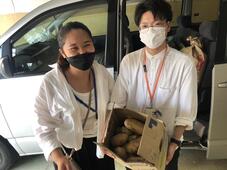
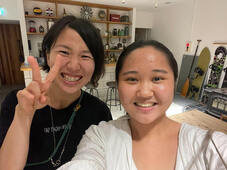
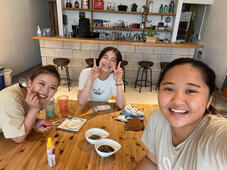
The Asia Christian Education Fund: ACEF
I served at ACEF mainly on regular social networking posts, attending events, and crowdfunding. The crowdfunding was very challenging and it took a lot of trial and error to reach my goal, but the people I cooperated with were very enthusiastic and guided me through the process, for which I am very grateful. With each Instagram post, the number of followers gradually increased, giving me a sense of accomplishment. I was impressed that we were able to have an online meeting with the school that the Bangladeshi children attend and see how the study tour went. The children greeted us with very nice smiles and we could tell that they loved learning. I was very impressed that the girls said that they wanted to be doctors in the future and the boys said that they wanted to be soldiers. I thought that they have a strong sense of patriotism and a desire to protect their country from an early age. At the same time, it made me think about how peaceful and blessed the Japanese people are.
Nagasaki University - Faculty-led Course
This was a great opportunity for us to work on the development of teaching materials and programs for experiential peace education.
We began our activities with the awareness that, in this day and age when war has become a distant presence, there is a need for experiential learning to cultivate the ability to see peace as one's own issue and to make decisions about it, and we have learned a lot.
For example, I was able to learn about the diversity of people called "Hibakusha”. Until then, the term "Hibakusha" was associated with the "official" image of Hibakusha holding Atomic Bomb Survivor’s Certificates, but as I heard from various organizations and individuals, I realized that my image of "Hibakusha" was one of the various ways of being a Hibakusha, and that my view of "Hibakusha" was fixed. I realized that my perspective on "Hibakusha" had been fixed.
We were also able to realize the effects of advanced media in this day and age, when the number of war survivors is decreasing and war remains are disappearing. None of the participants had any experience using advanced media such as VR, but with the cooperation of Nagasaki University staff, they learned new ways to use VR and other advanced media, and realized that the use of advanced media can create an opportunity to view war as an issue that is closer to home.
War may be perceived as somewhat of a stranger's problem, but this service-learning experience made us feel closer to it.
